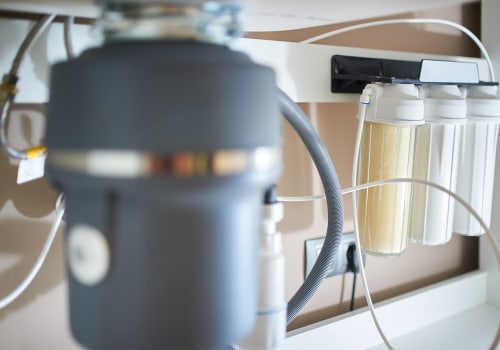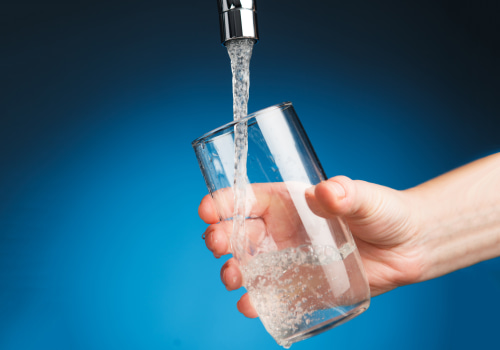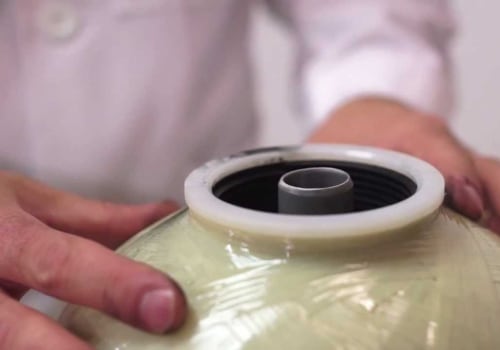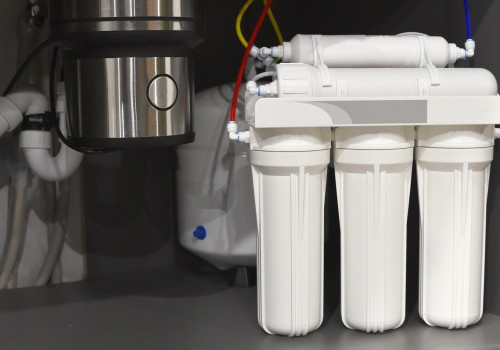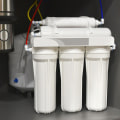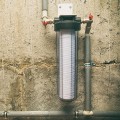Adapting Water Filters to Diverse Water Sources: Your Ultimate Guide
Are you looking for the perfect water filter to suit your needs? Look no further!
In this article, we will explore the world of water filters and how you can tailor them to different water sources. Whether you're dealing with tap water, well water, rainwater, or even needing a portable solution, we've got you covered.
With options like reverse osmosis systems and carbon filters, you'll better understand which filtration system is proper for you.
Let's dive in!
Key Takeaways
• Tap water filtration systems use activated carbon filters, reverse osmosis, and UV filters to remove contaminants and provide cleaner and safer drinking water.
• Well water filtration systems require regular testing, proper maintenance, and tailored filtration systems to address specific issues and ensure clean and safe healthy water.
• Rainwater filtration systems incorporate pre-filtration, carbon filtration, and UV sterilization to remove impurities and provide impurity-free rainwater. Regular maintenance and filter replacement is essential for optimal functioning.
• Portable water filters are compact devices that use advanced filtration technology, such as activated carbon filters and microfiltration membranes, to remove impurities from untreated water sources. They are ideal for hiking, camping, or traveling to ensure safe drinking water.
Tap Water Filtration Systems
If you're looking to improve tap water quality, there are various filtration systems available for you. Tap water filtration benefits are numerous, including removing impurities such as chlorine, lead, and bacteria.
One option is activated carbon filters, which use a porous material to trap contaminants as water passes through. These filters are effective in reducing chlorine taste and odor.
Another option is reverse osmosis systems, which force water through a semi-permeable membrane to remove impurities on a molecular level. This type of system can remove a wide range of contaminants, including heavy metals and fluoride.
Additionally, ultraviolet (UV) filters use UV light to kill bacteria and other microorganisms in the water.
It's essential to consider your specific needs when choosing a tap water filtration system to ensure you get the best results for cleaner and safer drinking water.
Well Water Filtration Systems
When it comes to well water, consider a filtration system that suits your requirements. Water can often contain impurities and contaminants that need to be addressed for safe consumption.
To ensure the quality of your healthy water, regular testing is essential. Conducting tests for bacteria, nitrates, pH levels, and other pollutants will help you understand the specific needs of your filtration system.
Once you have identified the contaminants present in your healthy water, you can choose a filtration system tailored to address those issues effectively.
Additionally, proper maintenance of the filtration system is crucial for optimal performance. Regularly changing filters and disinfecting the system will ensure clean and safe healthy water for you and your family.
Rainwater Filtration Systems
Rainwater can often contain impurities and contaminants, so having a filtration system that meets your specific requirements is essential. When it comes to rainwater harvesting and collection, several factors must be considered to ensure the water is safe for use.
1. Pre-filtration: A sediment filter removes large particles like leaves and debris before the water enters the central filtration system.
2. Carbon filtration: Activated carbon filters remove organic compounds, chemicals, and odors from rainwater.
3. UV sterilization: Ultraviolet (UV) light technology kills bacteria, viruses, and other microorganisms in the collected rainwater.
By incorporating these three elements into your rainwater filtration system, you can ensure that the water you collect is free from impurities and safe for various uses such as irrigation or household needs.
Remember to regularly maintain and replace filters to keep your system functioning optimally.
Portable Water Filters
Portable water filters are a convenient and efficient way to ensure the safety and purity of the water you drink while on the go. Whether hiking, camping, or traveling in areas with questionable water sources, a reliable portable water purifier is essential.
These compact devices are designed to remove harmful contaminants such as bacteria, viruses, protozoa, and chemicals from untreated water sources. Camping water filters use advanced filtration technology to provide clean drinking water without the need for electricity or plumbing. They typically employ a combination of activated carbon filters and microfiltration membranes to remove impurities and improve taste effectively.
Some models also incorporate additional features like UV sterilization or chemical treatment for extra peace of mind. Investing in a high-quality portable water filter ensures that you can enjoy safe drinking water wherever your adventures take you.
Whole House Water Filtration Systems
If you want to improve the water quality in your entire home, whole-house water filtration systems are a great option. They provide cost-effective solutions for ensuring clean and safe water throughout your household.
These systems are designed to remove contaminants from your water supply, such as sediment, chlorine, chemicals, and microorganisms. The installation involves connecting the system directly to your main water line, allowing all the water entering your home to be filtered. This means the filtration system will benefit every tap, shower, and appliance using water.
The installation typically requires professional help to ensure proper placement and connection. Once installed, these systems operate silently and require minimal maintenance.
Overall, whole-house water filtration systems offer a convenient and efficient way to enhance the quality of your home's water supply while being cost-effective in the long run.
Reverse Osmosis Systems
Reverse osmosis systems use a semi-permeable membrane to remove impurities from your drinking water. These systems effectively provide clean and safe drinking water for your household.
Here are the key benefits of reverse osmosis:
1. Improved taste and odor: Reverse osmosis removes chlorine, sediment, and other contaminants that can affect the taste and smell of your water.
2. Removal of harmful substances: This system eliminates toxic substances such as lead, arsenic, fluoride, bacteria, and viruses, ensuring pure and healthy drinking water.
3. Cost-effective: Reverse osmosis systems require minimal maintenance compared to other filtration methods, making them a cost-effective choice in the long run.
4. Easy maintenance: Regular filter changes and cleaning are essential for optimal performance. However, maintaining a reverse osmosis system is relatively simple, with only a few steps involved.
Carbon Filters
You can rely on carbon filters to ensure clean and safe drinking water. These filters effectively remove impurities and improve the taste of your water. Carbon filters are made with activated carbon, a highly porous material. This material can attract and trap contaminants.
When water passes through the filter, the activated carbon adsorbs impurities such as chlorine, pesticides, herbicides, volatile organic compounds (VOCs), and other chemicals that may be present in your water supply.
Additionally, carbon filters also help reduce sediment and particles. They do this by using sediment filters that physically strain out larger particles from the water.
This combination of activated carbon and sediment filters ensures that your drinking water is free from harmful substances while maintaining its clarity and freshness.
Frequently Asked Questions
Are water filters for different water sources interchangeable?
Water filters for different water sources are not interchangeable. Each filter addresses specific contaminants and impurities found in particular water sources. Using the right filter ensures optimal water filter effectiveness and provides the benefits of using water filters.
How often should water filters be replaced?
Water filters should be replaced regularly to ensure effectiveness. The water filter lifespan varies, but signs of a worn-out filter include reduced flow, unusual taste or odor, and increased contaminants in filtered water.
Can water filters remove bacteria and viruses?
Yes, water filters can effectively remove bacteria and viruses. They work by utilizing different filtration methods, such as activated carbon, reverse osmosis, and UV light, to eliminate these types of contaminants from the water.
Do water filters affect the taste of water?
Water filters can impact the taste of water, but it's a small trade-off for the health benefits they provide. They effectively remove contaminants, ensuring safe drinking water and protecting your well-being.
Are water filters easy to install and maintain?
Water filter installation tips include checking compatibility with your faucet, ensuring a secure connection, and following the manufacturer's instructions. Daily maintenance issues include replacing filters regularly, cleaning the unit, and monitoring water flow for abnormalities.
Earthwise Water Filters Phoenix
922 N Colorado Street, Gilbert AZ 85233
(602) 878-6160

